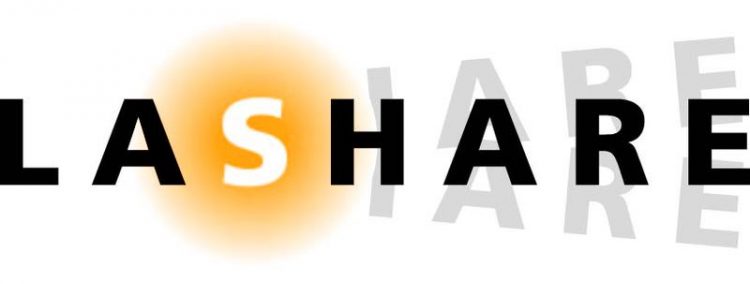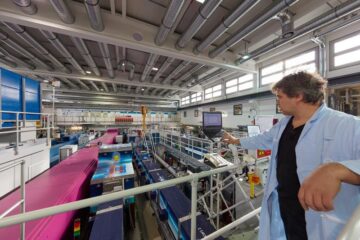LASHARE invites to the H2020 Workshop at the SPIE Photonics Europe in Brussels

LASHARE Logo Fraunhofer ILT, Aachen
Solutions for upcoming and existing challenges in manufacturing processes are necessary to raise European production to the next level. Laser-based equipment plays a fundamental role to enable new processes and new production environments to face the changing customer demands.
Applied research for Laser-based manufacturing is a key factor for innovating Europe’s production.
The need for robust solutions, innovative processes and new equipment for real world applications makes participants from all regions of Europe join forces and strive for the best quality.
At the SPIE Photonics Europe event in Brussels (April 5th, 2016), LASHARE invites to aworkshop on research for publicly funded projects from various fields of laser technology.
Considerable projects like LASHARE, APOLLO, RAZIPOL, ADALAM, CHARMING, COMBILASER, HALO, ISLA, MASHES and FABIMED will present their topics and first results. After discussing the achievements of each project, the event will close
with an »Innovation Valley«.
Visitors are welcome to get in touch and engage with key people who in the first line when it comes to photonic challenges. Partners from industry and research institutions share their expertise to inform and discuss innovative approaches and new solutions for the industrial sector.
http://www.lashare.eu
http://spie.org/EPE/course/h2020-workshop
http://s.fhg.de/BfE
Media Contact
Alle Nachrichten aus der Kategorie: Seminare Workshops
Neueste Beiträge

Bakterien für klimaneutrale Chemikalien der Zukunft
Forschende an der ETH Zürich haben Bakterien im Labor so herangezüchtet, dass sie Methanol effizient verwerten können. Jetzt lässt sich der Stoffwechsel dieser Bakterien anzapfen, um wertvolle Produkte herzustellen, die…

Batterien: Heute die Materialien von morgen modellieren
Welche Faktoren bestimmen, wie schnell sich eine Batterie laden lässt? Dieser und weiteren Fragen gehen Forschende am Karlsruher Institut für Technologie (KIT) mit computergestützten Simulationen nach. Mikrostrukturmodelle tragen dazu bei,…

Porosität von Sedimentgestein mit Neutronen untersucht
Forschung am FRM II zu geologischen Lagerstätten. Dauerhafte unterirdische Lagerung von CO2 Poren so klein wie Bakterien Porenmessung mit Neutronen auf den Nanometer genau Ob Sedimentgesteine fossile Kohlenwasserstoffe speichern können…





















